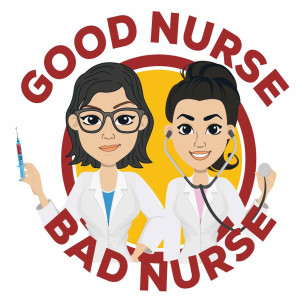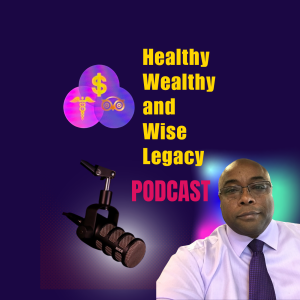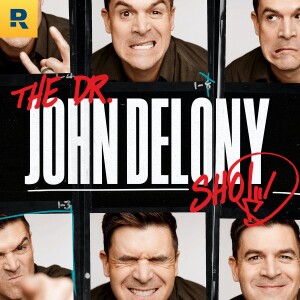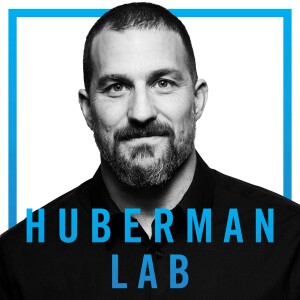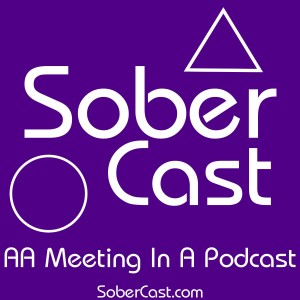

The Elite HRV Podcast: Heart Rate Variability, Biohacking Health & Performance, Quantified Self
https://feeds.soundcloud.com/users/soundcloud:users:259989999/sounds.rssEpisode List

How to Shift Out of Survival Mode into Growth
In This Episode: To realize our hopes and dreams we need energy and clarity of purpose. But, the global pandemic has rocked our physical and mental well-being, leaving many of us stuck in survival mode. In this episode of the Elite HRV podcast, we speak with Jonathan Moore, founder of Legacy Coaching, where we explore the mindset and tools his clients have used to successfully breakthrough survival mode towards stability and growth. Episode Guest: Jonathan Moore Jonathan has a background as a brain-based chiropractor with over 20 years clinical experience. His main focus over that time has been on the impacts that stress has on the brain, and the results that overload has on the health of a person. Website(s): https://www.legacycoaching.io/ https://www.facebook.com/groups/therevitalisedlife Show Notes: 00:23 - Intro 2:55 - How the pandemic has changed Jonathan's coaching practice day to day 5:36 - How the brain fits into chiropractic practice 8:35 - The physiological difference between someone stuck in survival mode and someone with stress resilience 10:00 - "Wrestle or Run" stress response 13:25 - Getting back into recovery - or not 17:30 - How Jonathan's practice tries to support their clients moving from survival mode to growth mode 22:00 - How mindset affects your ability to recover and reach your goals 28:00 - Creating internal stability 34:00 - How community and companions are crucial to sustaining your internal stability 37:15 - How putting forth your "best life" or your "performance life" on social media does **not** contribute to your inner stability 39:25 - What is success in "growth mode?" 46:00 - Legacy Coaching and where to find Jonathan Full transcript at https://elitehrv.com/shift-out-of-survival-mode-into-growth

The Health and Recovery Benefits of Blood Flow Restriction Training
Episode Guest: Sten Stray-Gunderson Sten is a certified BStrong BFR expert, training high-level athletes, and hosting seminars and educational training sessions to inform trainers, coaches, and therapist on how to properly and safely implement BFR into their programs. Additionally, Sten works for Reach Outcomes, an Austin-based performance center for athletes, providing holistic and integrated programming to maximize and accelerate performance. Sten has been an athlete his whole life, and played D1 collegiate soccer at Dartmouth. Combining his personal athletic experiences with the science of exercise physiology, Sten aims to provide high-level expertise and real-world solutions to training and performance. Sten earned his bachelor’s degree in Biology with Economics at Dartmouth College before earning a Master of Science in Exercise Physiology from the University of Texas at Austin, and is currently continuing his pursuit in Exercise Physiology by working towards a PhD from the University of Texas at Austin Website(s): - [https://bstrong.training/] - [https://www.frontiersin.org/articles/10.3389/fphys.2020.00568/full] - [https://pubmed.ncbi.nlm.nih.gov/32492734/] - [https://www.linkedin.com/in/sten-stray-gundersen-5311b0139/] In This Episode: Sten Stray-Gunderson really knows his stuff when it comes to Blood Flow Restricition (BFR) training! Tune into this one if you want to learn more about the subject. Whether you're first hearing about it now or if you've been familiar and using it for years, most everyone has something to learn in this one! Show Notes 01:30 - BFR training in a nutshell 04:00 - The origins and background of BFR training 05:45 - In what contexts BFR training is used today 08:00 - How BFR training works 10:45 - What the research says about BFR training 14:00 - How BFR training can be used to facilitate joint repair 19:00 - Jason's experience tinkering around with BFR training 23:15 - BFR training while travelling 24:30 - Dangers and considerations to be mindful of when first trying BFR training 28:15 - Sten's experience with discovering and eventually becoming an expert in BFR training 35:00 - The origins and unique nature of B Strong 40:00 - Time-saving potential of BFR training 44:00 - The potential effect BFR training may have on HRV 45:15 - An example of BFR training in practice

Cannabis, Spermidine and Optimizing Health, Immunity, and Longevity with Don Moxley
In This Episode: We cover what Don has been up to since the last time we had him on the podcast. Additionally, we explore what he learned from working in the cannabis industry, what he has to teach us about spermidine and autophagy, and some ways in which we can optimize health and longevity. Website(s): - https://themendico.com - projectcbd.org - http://spermadinelife.us(Discount code: HRV50) - longevitybioresearch.org - trainrecoverwin.com Show Notes: 01:15 - What Don has been up to the last couple of years 03:30 - How he transitioned into an opportunity to work in the cannabis industry 06:45 - The importance of the endocannabinoid system and how it works at a high level 09:00 - The evolution of cannabis legislation and the market in recent years 12:30 - The opportunity to use cannabis products as wellness tools 18:00 - Take-aways for those interested in trying cannabis products 25:00 - How Don transitioned into working for Longevity Labs 26:30 - What spermidine is and how it functions in the body 28:15 - What autophagy is and why we should care about it 33:45 - What people can expect to feel when supplementing with spermidine 37:15 - Energy toxicity and how we can bring it back into balance 39:30 - The difference between healthspan and lifespan and it's implications on what we should to to improve our longevity 45:30 - Intermittent fasting and it's implications on sports performance and longevity 52:30 - Spermidine and autophagy's role in immunity and potential for protection against viruses such as COVID-19 1:00:45 - How Don has used a mission-driven philosophy to re-define himself and his personal purpose

Tyron Groenewald And HRV- A Weight Loss Journey
Five years ago, Tyron Groenewald was overweight, stressed out, and sick. After his cardiologist diagnosed him with left ventricular hypertrophy — a condition where the ventricles have to work harder to pump blood, resulting in an enlarged heart muscle — Groenewald decided to make some major lifestyle changes to prioritize his health. His hard work has paid off. Just half a decade later, 35-year-old Groenewald is down 114 pounds, he runs every day, and his left ventricle now measures within a normal range. Along with implementing a healthier diet and more physical activity, Groenewald says measuring his heart rate variability daily — he’s currently on a 1100+ day streak of using his Elite HRV monitor — has been a key part of his health journey. ## **In This Episode** Tyron tells us all about his weight loss journey as well as the tools he used to achieve and maintain it. Hear how Tyron uses the data he gets everyday from using the Elite HRV app to understand how his body is responding to various inputs - be it food, exercise, cold therapy, etc. ## **Show Notes** 01:30 - Introduction to Tyron 05:00 - Tyron's 115 lb weight loss journey 15:30 - How the Elite HRV app has helped Tyron become and stay healthy 17:30 - How Tyron's diet has evolved throughout his journey 24:30 - Tyron's strategy of using time-restricted feeding to optimize his HRV 30:00 - Tyron's motivation for maintaining his weight loss 34:30 - How Tyron interprets his HRV data 41:30 - Cold exposure and how Tyron has used it to train his autonomic nervous system 47:00 - How Tyron's used running and weight lifting to help achieve and maintain weight loss 51:30 - Using Elite HRV to monitor super-compensation 57:00 - The importance of informing yourself in order to make progress

Enhancing HRV Biofeedback with Mindfulness Training with Dr. Inna Khazan
Enhancing HRV Biofeedback with Mindfulness Training with Dr. Inna Khazan Show Notes - 01:45 - Introduction to new co-host and Research Director at Elite HRV: Jef Fry - 03:00 - What Mindfulness-based biofeedback is and how Dr. Khazan became interested in it - 05:15 - How HRV Biofeedback can be like tuning the strings of an instrument - 09:30 - Examples of mindfulness - 13:45 - How often we should practice mindfulness - 17:00 - What the research says about mindfulness - 19:15 - How mindfulness can make your brain bigger - 24:00 - What a patient of Dr. Khazan can expect when coming in for treatment - 29:30 - Some of Dr. Khazan's best patient success stories - 36:30 - How HRV Biofeedback is about regulating HRV - not about learning how to relax - 41:30 - The mechanics of HRV Biofeedback - 44:00 - How to breath when doing HRV biofeedback - 51:15 - Ways in which you can incorporate mindfulness into your daily activities - 55:15 - Most common complaints about mindfulness that Dr. Khazan sees in her practice - 58:30 - Pros and Cons to monitoring HRV during an HRV Biofeedback training session ### Show Links -(http://www.innakhazan.com/) -(http://www.bostonhealthpsychology.com/) - Biofeedback and Mindfulness in Everyday Life Book-(https://www.amazon.com/Biofeedback-Mindfulness-Everyday-Life-Performance/dp/0393712931) - Biofeedback and Mindfulness in Everyday Life Blog-(https://www.psychologytoday.com/us/blog/biofeedback-and-mindfulness-in-everyday-life) Guest Bio Inna Khazan, PhD, BCB is a faculty member at Harvard Medical School, where she teaches and supervises trainees. She is clinical psychologist specializing in health psychology and performance excellence training using biofeedback and mindfulness-based approaches. Dr. Khazan is the founder of Boston Center for Health Psychology and Biofeedback, working with clients on optimizing their health and performance. Recognized as a pioneer in mindfulness-based biofeedback, Dr. Khazan is a popular speaker at national and international conferences on the topics of biofeedback and mindfulness. She has conducted biofeedback and mindfulness trainings for notable institutions in the US and abroad, including the US Navy Special Warfare, US Army Special Forces, and the Stuttgart Opera and Ballet Company. Dr. Khazan serves as president of the board of directors for Institute for Meditation and Psychotherapy (IMP), board member for the Association for Applied Psychophysiology and Biofeedback (AAPB), and Biofeedback Certification International Alliance (BCIA), where she is currently chair elect. Dr. Khazan writes for Psychology today, is the author of numerous journal articles and two books: the highly-regarded *Clinical Handbook of Biofeedback: A Step-by-Step Guide to Training and Practice with Mindfulness*, and the popular *Biofeedback and Mindfulness in Everyday Life: Practical Solutions for Improving Your Health and Performance*.
Create Your Podcast In Minutes
- Full-featured podcast site
- Unlimited storage and bandwidth
- Comprehensive podcast stats
- Distribute to Apple Podcasts, Spotify, and more
- Make money with your podcast
